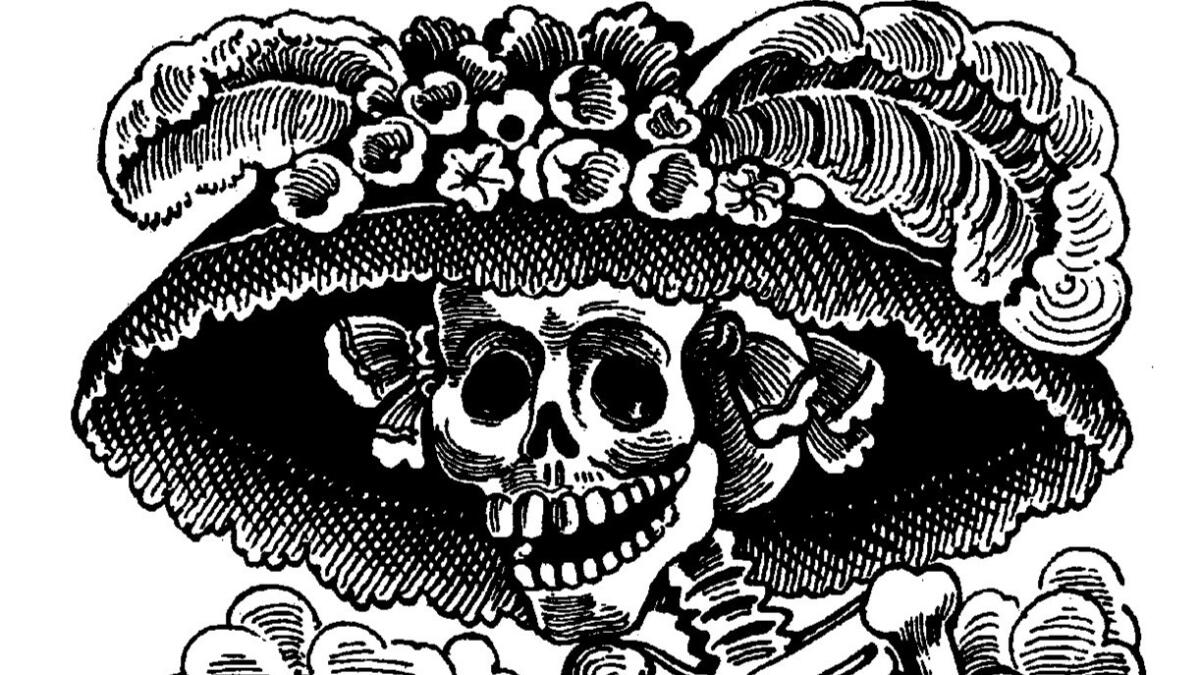Commentary: Raising my daughter to be Latina in more than name
- Share via
“Why is my name in Spanish?”
That question came up one morning as my daughter and I were getting ready for the day. She mentioned she knew her friend’s full name – even her middle name.
Hispanic Heritage Month: Tell us your story >>
After she told me her friend's first, middle and last names — all “American” names — I asked her whether she could say her own name. She could, with a little difficulty.
Then she asked,“Why is my name in Spanish?” I laughed. “Well, because we're Mexican,” I told her.
A few minutes later, I said, “Besides, your first name is not even in Spanish; it's in Mayan.”
In the afternoon, she asked her father the same question. And he told her the same thing.
“But I was born here,” she said.
It's little moments like these that remind me I’m a Latina raising a daughter in the U.S.
I was born in Mexico City and came to the U.S. when I was 18, and my husband was born here. His father was born in Guatemala, and his mother's grandmother was born in Chihuahua, Mexico.
We have a picture of her holding my daughter when she was a baby, a year before she died. To remember her, we put her picture up on Dia de Muertos, which many Americans call Dia de los Muertos. We make an ofrenda, or offering altar, on which we place calaveras (sugar skulls) and papel picado (paper maché) that my mom got in Mexico. We also go to nearby events around Ontario, and, when we can, Los Angeles.
Every year, there are more and more events. I also see more decorations for Dia de Muertos at Michael's, Walgreens, Bed Bath & Beyond.

In Mexico, I don’t remember seeing sugar skull and catrina figurines in major stores. It’s more of a farmers market endeavor, where they sell actual candy sugar skulls. In the U.S., it has been embraced by big retailers.
But there’s a difference – one that outlines how we celebrate the holiday.
My mother didn't put up ofrendas in Mexico. But they would have them in my school.
My daughter doesn't have that – only the fall festival, which I let her celebrate as well, but I make a point of reminding her of our traditions. I remind her of the reason for Dia de Muertos, which is not just putting up decorations. It’s a deeper, more ancestral meaning to it.
It’s a delicate balance incorporating my culture into our family. She understands Spanish and speaks it “poquito” (a little), but relatives from Mexico often give me a hard time that I should speak to her in Spanish more. I want her to be proud of her culture and her ancestry, but I know at her age, she's just trying to fit in. I know her identity will be different from mine.
Her experience growing up is already vastly different. She’s not just Mexican; she’s Mexican-Guatemalan American.
We pick our battles. We choose if we spend all day making tamales on Christmas Eve day or if we order them from Neiman Marcus.
— Denise Florez
For a moment, I wondered whether I should have named her Ashley or Brianna, but then I quickly remembered that's not who I am. We chose the Mayan name Nicte-Ha, which means water flower, because the Mayan civilization flourished in Mexico and Guatemala. I wanted a name that honored her ancestry.
It’s true that I haven’t been diligent in teaching her Spanish, but I try to incorporate it as much as I can, when I remember. At least I got her to roll her Rs.
As Latinos, we get to pick and choose which aspects of our culture we retain, struggling against the pull of the mainstream tide. We pick our battles. We choose if we spend all day making tamales on Christmas Eve day or if we order them from Neiman Marcus. We choose to not have tamales for Christmas at all. It’s a choice to assimilate or not, how much or how little. How much of our ancestry do we preserve for ourselves and for our children.
When Nicte-Ha asked again why her name was in Spanish, I gave her a brief explanation of why our last names are in Spanish, how the Spanish people arrived in Mexico and why it’s a part of who we are.
A few days later, as we were looking at her yearbook, she said another friend’s name, Rosa, in Spanish, with an emphasized R.
“I like saying her name in Spanish,” she said.
We’d love to hear your story about what being Latino means to you. Share your experiences using this form or on Instagram with #MyLatinoIdentity or #MiIdentidadLatina.
